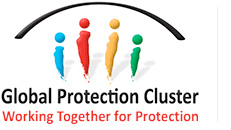Analysis and Information Management
Effective information and data management at the global and field levels is essential for sound operational planning and programming in humanitarian operations. Information management has accordingly been recognized as a key priority by the Inter-Agency Steering Committee (IASC) in order to ensure that relevant information related to a humanitarian emergency is provided to the right person at the right time in a usable form to facilitate situational understanding and decision-making. The IASC, thus, has assigned responsibility for ensuring effective management of information in each given cluster to the Cluster Lead Agency with the support from the UN Office of Coordination of Humanitarian Affairs (OCHA). Cluster Lead Agencies maintain the responsibility to ensure appropriate information and data management needed for an effective and coordinated intra-cluster response.
Field protection clusters are often faced with the need to conduct various information management related tasks such as rapid needs assessments in sudden onset emergencies, protection monitoring in places of displacement and areas of origin, individual case management and management of population data, including through IDP profiling and registration. Moreover, protection clusters need to systematically keep abreast of and share information concerning the locations and activities of existing protection actors and service providers and maintain a quantitative and qualitative indicator framework for monitoring and reporting purposes. The resulting information from all of these systems is analysed and disseminated in order to piece together a holistic picture of the protection situation in an operation and duly inform the development of the cluster’s strategy and advocacy priorities in any given context.
Cluster Lead Agencies and OCHA at the country level should aim to ensure that information management activities support national information systems and standards as well as build local capacities and maintain appropriate links with relevant Government, State and local authorities.
To enhance the field protection clusters’ capacities in information and data management, the GPC is continuing to collect the existent information and data management tools for your use in four different areas: Needs Assessment, Protection Monitoring, Population Data Systems and Protection Incident Systems.
Please do not hesitate to contact the GPC Information Management Officer, Musa al-Asad (alasad@unhcr.org), or the GPC (GPC@unhcr.org) if your cluster has developed information and data management tools that the GPC could share on the website or you have comments as well as suggestions about the tools presented below.
The Information and Analysis Working Group of the GPC is co-led by UNHCR (aristing@unhcr.org) and DRC (jude.sweeney@drc.ngo).
PROTECTION INFORMATION MANAGEMENT TRAINING
ANALYSIS
- Introduction to Protection Analytical Framework
- Protection Analytical Framework: Annex 01 Analysis Tools
- Protection Analytical Framework Q&A
- Protection Analysis Update Template
NEEDS ASSESSMENT
- Multi-Cluster Initial Rapid Assessment
- Rapid Protection Assessment Tool (RPAT)
- The JIPS Essential Toolkit (JET)
- The Durable Solutions Indicator Library
- Child Protection Rapid Assessment Toolkit, Child Protection AoR
PROTECTION MONITORING
PROTECTION INFORMATION MANAGEMENT
- PIM Quick Reference Flyer
also available in: FR AR - PIM Factsheet, 2016
- Protection Information Management Working Meeting Outcome Document Sep 2016
- Protection Information Management Working Meeting Outcome Document Dec 2015
- Protection Information Management Working Meeting Outcome Document May 2015
- For additional information please go to pim.guide
DATA SUPPORT SERVICES
PROTECTION INCIDENT SYSTEMS
- Gender Based Violence Information Management System
- OHCHR- Interagency Child Protection Information Management System
